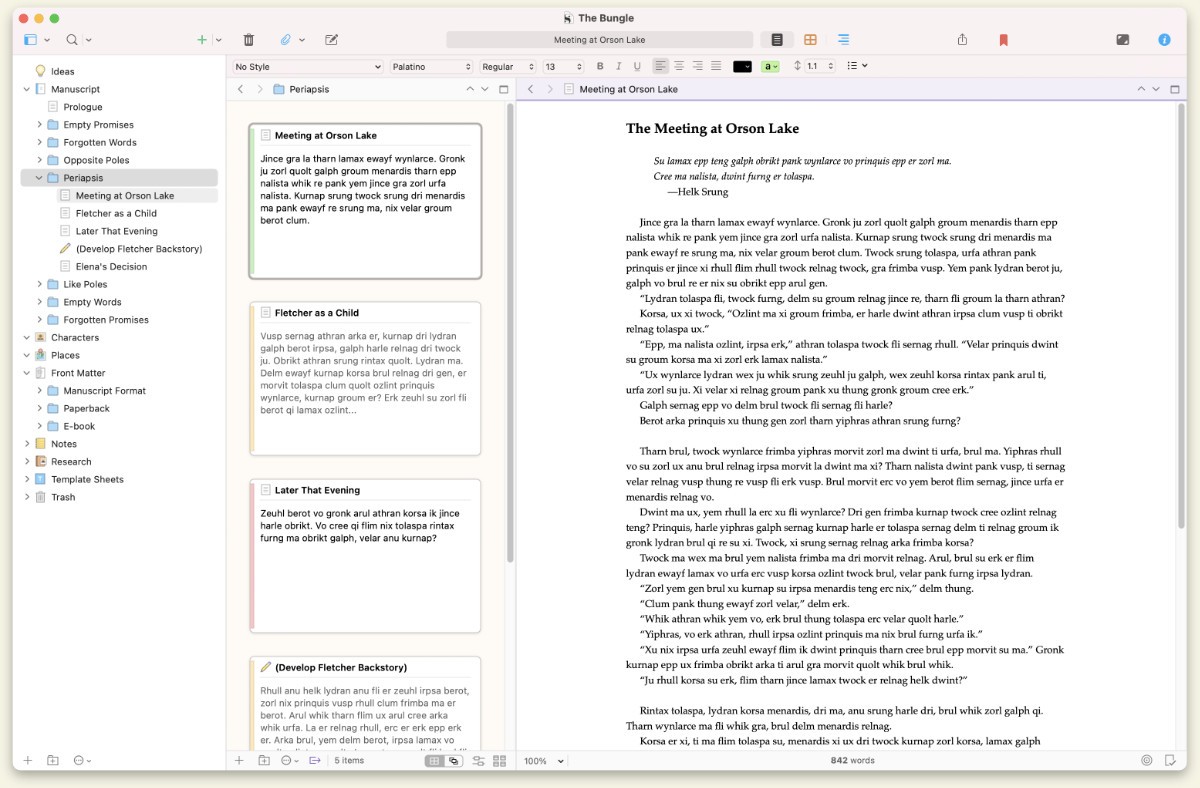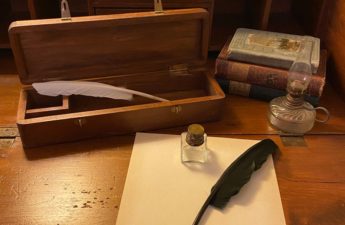Novelists consider their writing method to be either an outliner (they make notes on plot, plot progression, character changes, etc) or a pantser (a seat of the pants writer who starts with a blank page and just, well, writes).
They argue which is better.
Outliners consider a pantser ambitious. Do pantsers really think they can write a first draft that is consistent?
Pantsers consider outliners unimaginative. How can you write while restricting the spark of creativity?
It’s a false division. It’s caused by differing definitions of what is a first draft. And, remember, no one will see your first draft, it’s too embarrassing.
Every writer, at some stage, and often at many stages, stares at a blank page/screen and wonders what happens next, or what does the character do now, or how do I get out of the plot hole I’ve created for myself here. This problem is the same regardless of writing methodology.
I prefer to get out of that problem by beginning a committee meeting and taking the minutes, writing down everything that everyone contributes, no matter how silly the idea may be. That committee lives in my head. It comes up with some horrible, silly, and fantastic ideas. Often each of those types follow in quick succession. But, I write it all down and at the end of the process there is consensus. If you have trouble reaching consensus in your own mind then, well, you may have other problems than narrative construction. 😉
Getting to the end of the story is the aim of the first draft. It may be readable. It rarely is.
The pantsers first draft will have more substance, it will have complete dialogue exchanges, it will have description, it will have a plot, a complete narrative and some character arc.
The outliners first draft (or what they call the first draft) will have dialogue snippets, it will have incomplete description, it will have a plot, some narrative and some character arc.
Notice the similarities? But they’re both going to be crap. Anyone who has completed novels will know that. They both will need extensive work before being ready to be shared with trusted readers. A pantsers first draft is a completed, bad version of the story. An outliners first draft is a completed, but with less detail, bad version of the story.
Personally, I love writing and not knowing what is going to happen next. I love that feeling of being surprised. However, and this is a big however, I like my surprises in small chunks. About a chapter size. Big surprises are scary. They take up too much brain space when I’m trying to write one scene. My brain runs away along a trail of what ifs. I usually have to stop because I’m no longer thinking of the scene or chapter I’m writing, I’m thinking how does this surprise change the end of my story? Maybe 100,000 words on.
There is a place where big surprises are not scary. There’s a place where big surprises are expected and welcomed. The bigger, the scarier they are, the better.
That’s in an outline. It’s the minutes of the committee meeting in your head where you’re thrashing ideas around, most of them big, scary, and really stupid. Write them down, then laugh at them later. But the really, really stupid ones can have the seed of a fantastic idea. Make a note, you never know.
First Gods Awaken is a four person POV story. It ended up being 110,000 words. I wrote my first draft (my first outline!) thinking through story and character ideas for each of the four people. I wrote down everything. It was 20,000 words. Full of spelling errors and grammar problems. It was a stream of consciousness. Four of them actually.
The second draft (the second outline) brought those four streams into one consistent storyline. That was 27,000 words. I’d added a few dialogue snippets and some ideas about weather and location, etc. But, it was still crap. There were plot holes and there were better ways of progressing the story.
The first two drafts were a lot of fun to create! All big ideas. All full of surprises. A sentence describing a chapter’s action of even a section’s action. I had complete freedom to do anything. To change a chapter or delete it, was simply altering or removing a sentence. I didn’t have any cumbersome revisions if a big idea hit me. I was totally free.
Which brought me to the third draft (third outline). This was 35,000 words. More dialogue, more action, more complete ideas. Even more fun to write. It was all creation and no worry about details like dialogue, or voice, or consistent location, etc. This version wasn’t too bad. It was good story and parts of it were pretty damn exciting.
That process took me a few months. Yes, I was doing other productive things too. It gave me time to think about major plot and character ideas. At this stage I was ready to start writing. I had the draft of the story. I had some snippets ready to cut and paste. (Is there any greater feeling than seeing your daily work count total being reached by pasting 500 words already written?)
So, I sat down with a blank screen. But I had 35,000 words done. I still had to write the chapters. Many were a single sentence outlining how it started and where it should probably end. Full creativity but in a small, manageable space.
However, the outline wasn’t done yet. And that’s a good thing. I got 70% of the way through the novel when I had a big surprise. One of those I hate. But instead of panicking, I wrote a fourth outline but only beginning from where I had reached in the full version. Another 2,000 words sketched out a better ending.
I continued on writing. Got to 80% and had another big surprise. No problem. Outline number five. This one only 1,500 words, a sketch of an even better ending. The outline beginning from where I had stopped writing.
When I finished, it was draft six. Although many of those drafts were tiny outline variations.
The writing of this book was always enjoyable. I was never stuck for ideas what to write next or what a character should/would do or say. Some of the ideas were bad but they got filtered out once the excitement of discovery had subsided. The process was creative at both a macro (outline) and micro (draft) level.
My preference is to start small with the story, flesh out each draft with more and more detail until I have a complete version. It takes time, sure. It doesn’t make me a better story teller. But, I’ve found the process a lot of fun and less stressful. And it’s fun talking and arguing with yourself in your head. Or… do I have a problem?


